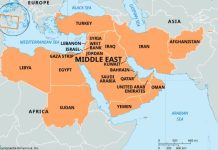ISLAMABAD, AUG 12: The government is considering a mechanism to impose a price equalisation levy, or surcharge, on wellhead gas to cross-subsidise protected residential consumers and industrial sectors, with an aim to relieve a Rs10-15 billion burden from the federal budget on account of annual subsidies enjoyed by the sector.
The initiative is part of petroleum sector reforms under the Integrated Energy Plan, driven by the Prime Minister’s Office in collaboration with international lending agencies, to transform the country’s inefficient gas companies to self-sustaining and profitable entities, ultimately paving the way for their privatisation.
The development comes as the country’s energy challenges are mounting, with the population projected to cross 250 million by 2050 and per capita primary energy consumption being among the lowest in the region — at 0.33 tonnes of oil equivalent (TOE) compared to 0.39 in Sri Lanka and 0.65 in India.
If the country continues to industrialise and grow at about 3.5 per cent on average per year, energy needs will still almost double by 2045.
12 consulting firms hired for petroleum sector reform
At present, about 82pc of Pakistan’s energy needs are met through fossil fuels (oil, gas and coal), the bulk of which is imported. This is a major drain on foreign exchange for a country like Pakistan, as these imports constitute more than 30pc of the current import bill, and rising.
Moreover, domestic gas supply is estimated to decline from around 3 billion cubic feet per day (bcfd) to around 1 bcfd by 2035, while total needs will increase from about 5 bcfd to 6.2 bcfd.
The petroleum division has already hired, or is in the final stages of hiring around a dozen local and foreign consulting firms for technical, financial and expert advice. A fresh tier of senior officials in special grades is also being inducted to various technical wings of the petroleum division.
Petroleum Minister Dr Musadik Malik has been tasked with overseeing the development and improvement of “blended revenue requirements for wellhead gas (produced at fieldgate), pipeline gas (in the Sui network) and imported Regasified Liquefied Natural Gas through the weighted average cost of gas (Wacog) to meet overall revenue requirements of gas network.
Informed sources said the government had set an Aug 16 deadline for the induction of at least six technical analysts and legal and financial consultants for minerals, upstream, mid and downstream sectors in Special Professional Pay Scales (SPPS-II) through a head-hunting process. “Deadline may not be fully met, but a delay will be very short, spanning days, not months,” an official said.
The process is designed to create a wholesale gas sector marketplace through separation of pipeline business from distribution companies — a model the successive military and civil governments have failed to develop in the power sector in the three decades since 1991 when Wapda was unbundled on similar promises.
The interest from international companies, mostly from the Middle East, in the gas sector has raised hopes that restructuring SSGCL and SNGPL as pipeline companies for subsequent privatisation and letting the private sector set up distribution and sales companies could attract foreign investment and best practices if the process is run in a professional manner.
This could get support from the completely digitised exploration and production (E&P) sector, where resources are mapped, processes are re-engineered and monitored on key performance and metric indicators with the induction of artificial intelligence tools for predictive maintenance and resource management.
The petroleum division has already engaged about a dozen international and local consultants for specialised sectoral input for harmonisation of mineral laws (White & Case), benchmarking of offshore incentives and comprehensive gas demand and future gas projects (Wood Mackenzie), financial audit of Sui companies (KPMG), determination of exemptions from Freedom of Information and Protection of Privacy Act (FIPPA) to Turkmenistan-Afghanistan-Pakistan-India pipeline (Orr Dignam and PwC), and legal view of French law regarding Iran-Pakistan pipeline sanctions (CLM, Willkie Farr & Gallagher).
Meanwhile, Three Crowns LLP and McKinsey are being hired for the Iran-Pakistan pipeline project and process mapping and functional reorganisation of the Ministry of Petroleum, respectively.
Officials claim that in view of the global energy transition currently underway at a fast pace, an integrated energy plan seeks, through these consulting firms, the review of policy and macroeconomic review and supply chain management, root causes of circular debt in the gas sector and cash flows and international benchmarking of policies to attract exploration and production firms in offshore region and tight and shale gases.
They said that building upon the Offshore Basin and Benchmarking study, an in-depth study was in progress to finalise proposals for exploration, particularly through a government-to-government (G2G) basis on top priority.
The engagements with the Chinese side were progressing well for offshore exploration, given the view that western E&P firms in the past gave up their work plans after one or two exploration wells — like the much-hyped Kekra-1 in the recent past — compared to 17 attempts for a major hydrocarbon discovery in India.
The Chinese government has already acquired substantial seismic data in the offshore areas by conducting three offshore expeditions and discussions were in progress for the award of exploration blocks to Chinese national companies, such as the China National Offshore Oil Corporation on a G2G basis.
In addition, a total of 24 offshore blocks have been identified for an auction round to be announced soon. For this, Wood Mackenzie and LMKR have already been prequalified for marketing these blocks.
Moreover, the apex committee of the Special Investment Facilitation Council, the country’s explosives control regime is being overhauled and linked to a track-and-trace system (TTS).
The Pakistan Information Technology Board and the Department of Explosives have already signed an agreement for completely operationalising the TTS by Sept 15 with the induction of GPS, biometric and bar codes ensuring integrity of the supply chain.

















